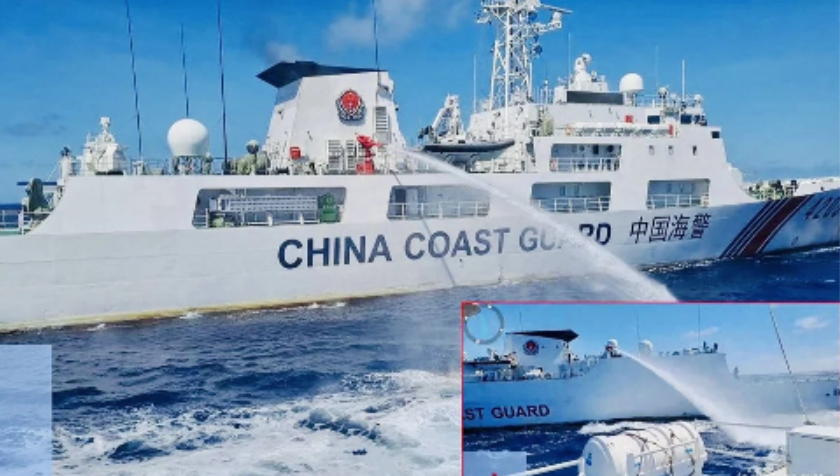The Philippines accused China’s coast guard on Tuesday of firing water cannons at government vessels transporting supplies to fishermen at the disputed Scarborough Shoal in the South China Sea.
However, Beijing asserted that its “control measures” were a response to the boats’ intrusion into Chinese waters.
This incident marks the latest confrontation between the two countries over the Scarborough Shoal, a fishing area within the Philippines’ exclusive economic zone that China also claims as its own territory.
“We urge the Philippines to immediately cease its violations,” stated Liu Dejun, spokesperson for China’s coast guard. China’s statement added that two Philippine ships had “invaded the waters” near Scarborough Shoal, prompting the coast guard’s response, which it described as “control measures.”
According to the Philippine Bureau of Fisheries, its vessels were on a routine mission to resupply Filipino fishermen when three Chinese coast guard ships and a People’s Liberation Army Navy vessel approached at close range, shadowing their movement.
“The CCG vessels attempted to impede the mission … but were unsuccessful,” the bureau’s statement said. “The CCG vessels also directed water cannons at the Philippine civilian boats, but they were out of reach.”
The Philippine vessels involved in the incident were identified as the Datu Cabaylo and the Datu Sunday.
Scarborough Shoal, named after a British ship that ran aground there nearly three centuries ago, is one of the most contested maritime areas in Asia, frequently sparking diplomatic tensions over sovereignty and fishing rights. China claims nearly the entire South China Sea, overlapping with claims by Brunei, Indonesia, Malaysia, the Philippines, and Vietnam.
This latest incident occurred as leaders of the ASEAN regional grouping convened in Laos for a summit, where the Philippines was expected to raise concerns about growing tensions in the South China Sea.
